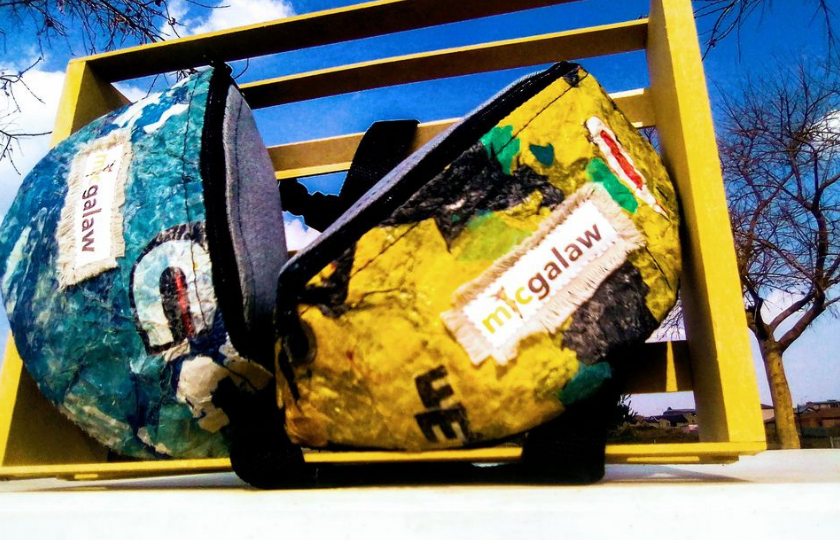In South Africa, recycling is not so common, with only 16 per cent of plastic recycled while the remaining 84 per cent of plastic waste end up in landfills, eventually polluting the rivers and oceans.
According to a report, this failure can be attributed to poorly-designed packaging and a lack of industry guidance.
Despite this, the recycling industry in South Africa is moving forward with its numbers improving. A recent survey showed that 60 per cent of the country’s youth is concerned about the environment and want to turn their passion into a possible career.

Just like how these two young women, Phumudzo Muthanyi and Mbali Mokgosi are carving out a niche for themselves in the country’s recycling sector and founded MicGalaw, a startup that turns plastic waste into alt-leather for bags and accessories.
The duo shared that they got inspired to launch the company because plastic waste “smothered” their town, and there aren’t any initiatives to recycle them. They also said that it took them nearly three years to learn how to work with plastic waste material.
To collect the plastic, Muthanyi and Mokgosi launched a campaign in their hometown, Johannesburg, where they cleaned illegal dumping areas together with the 15 youth who joined the campaign and worked with the startup.
MicGalaw works with four types of plastics: low-density polyethylene (LDPE), linear-low density polyethylene (LLDPE), polyethylene terephthalate (PET) and high-density polyethylene (HDPE). The materials were chosen because they were commonly used plastic and easy to access.
Manufacturing the bags involves two processes. First, after collecting the plastic, it is then washed, segregated and cut out into words or patterns. The material is then transferred to a facility where it is shredded and melted to become a fabric that looks and feels like leather. The second process involves industrial machines where the company creates the product from scratch, from washing, cutting, designing, and the finished product.
The startup’s first collection launched in 2019 with five bags made from fully upcycled, recycled bags. Now the company has decided to use 80-per-cent recycled material only, and the remaining 20 used real leather to make the accessories look “brand new”.
“A lot of young people don’t know what happens to their waste, and they don’t understand the importance of recycling, reusing, and reducing, so we want to welcome young people in the recycling community,” Muthanyi said in an interview with Global Citizen. “We want to raise awareness, to educate and change the perspective people have about the environment and recycling.”



